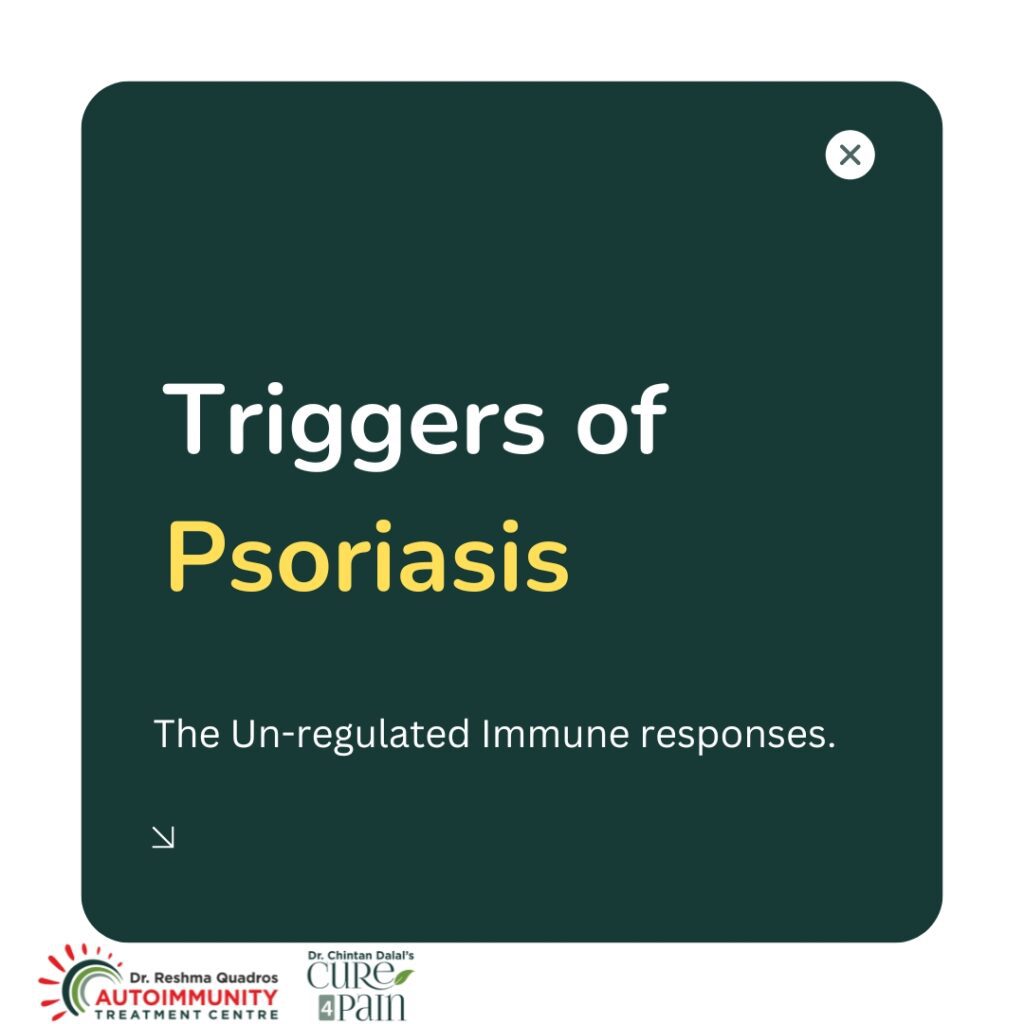Psoriasis is a chronic, immune-mediated skin disorder that causes rapid skin cell turnover, resulting in the development of thick, scaly patches on the skin. While genetic factors are known to contribute to psoriasis, emerging research indicates that environmental and physiological elements—such as low Vitamin D levels, Vitamin D resistance, and immune changes post-pregnancy—play a significant role in both triggering and exacerbating this condition. By understanding these root causes, individuals can explore more effective treatment options, particularly in the realm of Orthomolecular medicine. Clinics specializing in psoriasis treatment in India, like Cure4Pain, emphasize this approach as a sustainable method for managing autoimmune skin diseases through Vitamin D therapy and related co-factors.
Vitamin D and Its Crucial Role in Psoriasis
Vitamin D is fundamental to both skin health and immune system regulation. It helps modulate the immune response, preventing the type of chronic inflammation associated with autoimmune conditions like psoriasis. Several studies have highlighted a clear connection between low Vitamin D levels and the increased risk of developing psoriasis.
For instance, research published in the Journal of Investigative Dermatology found that psoriasis patients exhibited significantly lower Vitamin D levels compared to individuals without the condition. This deficiency weakens the skin’s natural repair mechanisms and impairs its barrier function, leading to common psoriasis symptoms, such as redness, scaling, and inflammation.
Vitamin D Resistance and Its Impact on Psoriasis
While low Vitamin D levels are a major concern, some individuals with psoriasis may also experience Vitamin D resistance. This condition occurs when the body is unable to efficiently utilize Vitamin D, often due to genetic factors or problems with the Vitamin D receptor (VDR) pathway. A study in the Journal of Autoimmunity found that certain genetic polymorphisms in the VDR gene are more prevalent among psoriasis patients. These variations can make the body less responsive to Vitamin D therapy, further intensifying the inflammatory processes behind psoriasis.
This resistance makes managing the condition more challenging, as standard treatments may become less effective. Addressing this issue often requires a tailored approach to Vitamin D supplementation and co-factor therapies.
Post-Pregnancy Immune Suppression and Psoriasis Flare-Ups
Immune system fluctuations during and after pregnancy can also impact psoriasis. During pregnancy, the immune system naturally becomes suppressed to protect the developing fetus, but once the pregnancy is over, the immune system may rebound, becoming overactive. This sudden immune shift, combined with hormonal changes and the physical stress of childbirth, can exacerbate or trigger psoriasis flare-ups.
The British Journal of Dermatology reported that women are at an elevated risk of developing psoriasis or experiencing flare-ups in the postpartum period due to these immune changes. These findings highlight the importance of addressing immune function when managing psoriasis, particularly for new mothers.
Recognizing Psoriasis Symptoms
Psoriasis symptoms can vary depending on the type of condition, but common signs include:
- Red patches of skin covered with thick, silvery scales
- Dry, cracked skin that may bleed
- Itching, burning, or soreness
- Thickened or pitted nails
- Joint pain and swelling (in cases of psoriatic arthritis)
Understanding these symptoms is crucial for timely diagnosis and treatment. For those seeking psoriasis treatment in Mumbai or across India, identifying the root causes—such as low Vitamin D, Vitamin D resistance, and post-pregnancy immune suppression—can provide valuable insights into more effective management strategies.
Holistic Approaches to Psoriasis Treatment
Psoriasis is a multifaceted condition that often requires a comprehensive, individualized treatment plan. By addressing contributing factors like Vitamin D deficiency and resistance, and considering the immune system’s behavior post-pregnancy, patients can achieve longer-lasting relief from symptoms. Holistic treatment approaches, such as those offered at Cure4Pain Clinic India, focus on optimizing Vitamin D levels and addressing these underlying triggers.
For those searching for psoriasis specialists in Mumbai, finding a doctor who understands these connections is key to improving overall treatment outcomes.
References:


